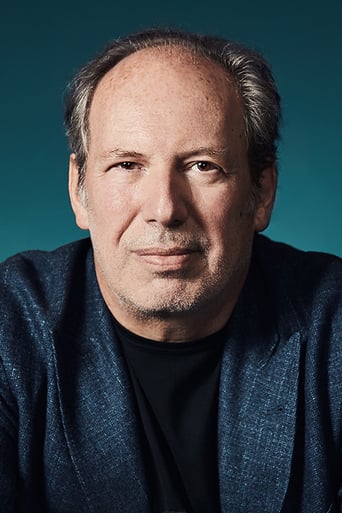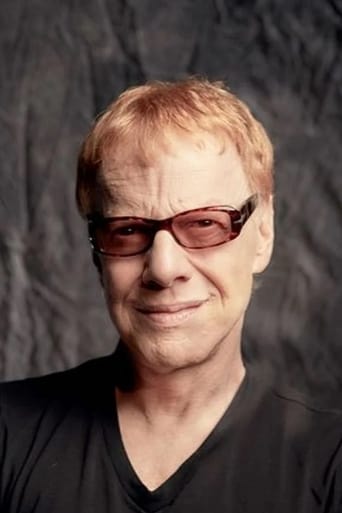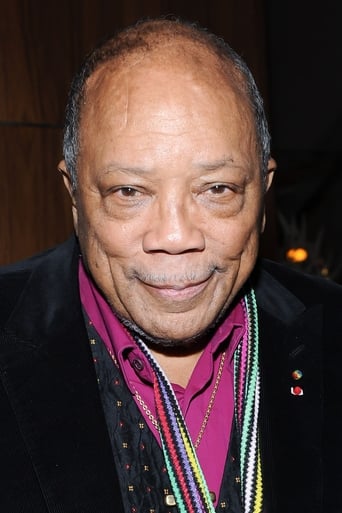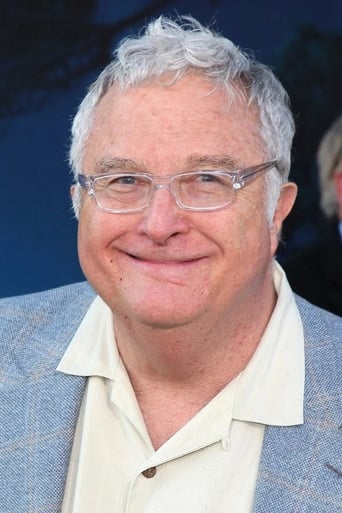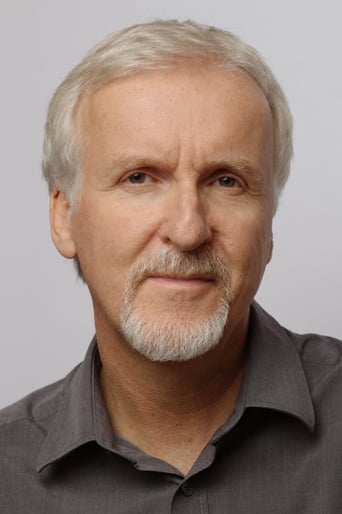Matcollis
This Movie Can Only Be Described With One Word.
NekoHomey
Purely Joyful Movie!
ReaderKenka
Let's be realistic.
KnotStronger
This is a must-see and one of the best documentaries - and films - of this year.
davedavidedwards
A wonderful film, that hits all the right beats and evokes an often overlooked but key part of the production process.An utterly charming documentary.
intelearts
Score is the sort of documentary that anyone with more than a passing interest in film can enjoy - financed partially by 1,870 backers it explores in real depth the process, the creation, the orchestration, engineering and history of the past 30 years in film.Score starts ambitiously, looking at movie scoring in the 30s, 40s, and 50s, before turning to the great composers of the 70s Jerry Goldsmith and John Williams. It then turns to look at more recent favourites. There are plenty of interviews and plenty of scores.However, the film is restricted by studio choices to only being able to use certain scores, and some of the really great film scores that one would love to know more about just aren't there. In particular, with the tragic death of James Horner, having only a two minute piece (a very good piece though) in the end credits is a real shame. I sat through the whole film waiting for the section on James Horner that simply isn't there.Again, it is a well-made and interesting insight to the world of film scoring and deserves viewing, but for this viewer by not being able to get all the studios to release their soundtracks at a minimal cost the film ends up focusing on only some of the great scores.
jfrfilm
If you love movies and love the music of the movies, then this film is for you! First of all, a lot of great music here and there as examples, and the interviews with top composers are very informative. There is a little bit of film history woven in, and of course film music history, too. This film really hits all the bases. I'm an indie filmmaker/composer in development myself, and already knew many of these things in the film, but the film was still very informative and inspiring to me! If you have any interest in movies and music, this film may just "suck you in" and keep you watching!It covers also about the psychology of music in film, why and how the music does what it does - to create or enhance a mood and help guide the audience towards the intended purpose of the filmmakers. And then there is also a lot of info about specific films and how they decided what kind of style and sound they wanted. And some info about the technical processes also, how they work in the recording sessions, and during editing of the movies.
David Ferguson
Greetings again from the darkness. Some people remember movies by recalling the story … others by picturing the actors … still others by crediting the writer and director. Surprisingly, it's the film's music that we subconsciously carry with us. Even years later a theme song can trigger an emotional tie to our favorite movies. The magic of movies and their scores are so inter-connected that you often can't think of one without the other: Jaws, Star Wars, The Magnificent Seven, The Good, The Bad, and The Ugly, Psycho, Gone with the Wind, James Bond, Batman, Titanic, Chariots of Fire, and Jurassic Park (to name a few). Chances are, just reading that list caused you to hear the themes!Director Matt Schrader, in his directorial debut, takes us back to the beginning by explaining that silent films were never really silent. There was invariably live or recorded musical accompaniment to help muffle the sound of the projector. But it was Max Steiner's score for King Kong in 1933 that really changed the game. His music transformed that film from a schlocky special effects B-movie into a tense, thrilling cinematic experience.This is so much more than a history of important and beautifully written scores. Director Schrader interviews most of the well-known film composers working today. He gains insight into their writing process, commentary on the ground-breakers who came before them, and uncovers how technology, new instruments, new styles, and a different approach are always in the works.Some of those interviewed include Rachel Portman (the only female composer included here), Randy Newman, Danny Elfman, Atticus Ross and Trent Reznor, and Thomas Newman (son of Alfred). There is also a well-deserved segment reserved entirely for the great John Williams, and we get reminded of the revolutionary composers like Jerry Goldsmith (Planet of the Apes, Chinatown) and Bernard Hermann (Psycho), as well as Henry Mancini (The Pink Panther), Monty Norman (James Bond), and Ennio Morricone (classic westerns). A quick segment that proves quite entertaining focuses on Mark Mothersbaugh (formerly of Devo) telling the story of how he used a toy piano for the score of Rugrats, but regrettably no longer has possession of the little piano anymore.Oscar winning composer Hans Zimmer is a recurring voice throughout and provides some structure to the numerous interviews and segments. It's quite humorous to see this highly accomplished, world-renowned composer in his early days as a keyboardist for The Buggles' "Video Killed the Radio Star" (the first video played on MTV). More importantly, Mr. Zimmer discusses the insecurities and pressures that go along with the job, and how change (such as his aggressive sounds) isn't always welcomed openly.The technical aspects of creating the score are certainly not ignored. We get a glimpse inside Abbey Road Studios, and how thrilling it is for a composer to hear the live orchestra bring his or her music to life that first time. It also serves as a reminder that film composing employs a significant number of the live orchestral musicians working today, and that we all hope technology doesn't replace that imperfect beauty of the real thing.Adding a scientific perspective was a nice touch. Learning that our brains respond to movie music in a similar manner to chocolate and sex made a great deal of sense, as I've often wondered if film scores are more manipulative or complementary in nature. If there is a disappointment in the film, it's that the recently deceased James Horner seems woefully short-changed, with only a brief post-credits segment featuring director James Cameron who, as usual, spends the time talking more about himself than the impact of Horner. This documentary is a must for movie lovers and music lovers, and on a personal note, made me miss my friend Adam very much. He would have certainly enjoyed this one and had a great deal to say about it.



